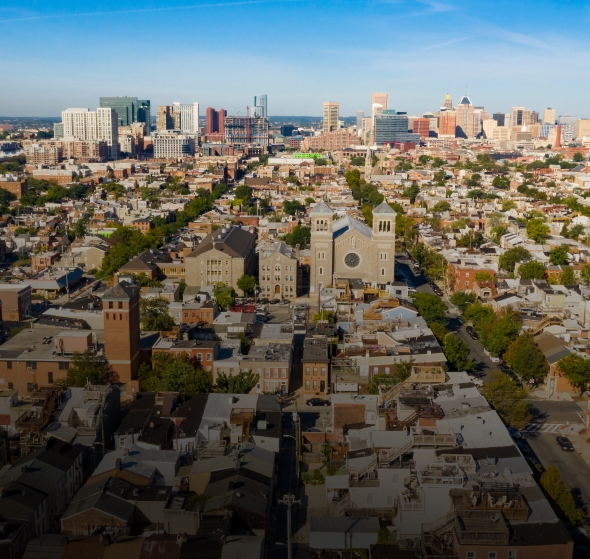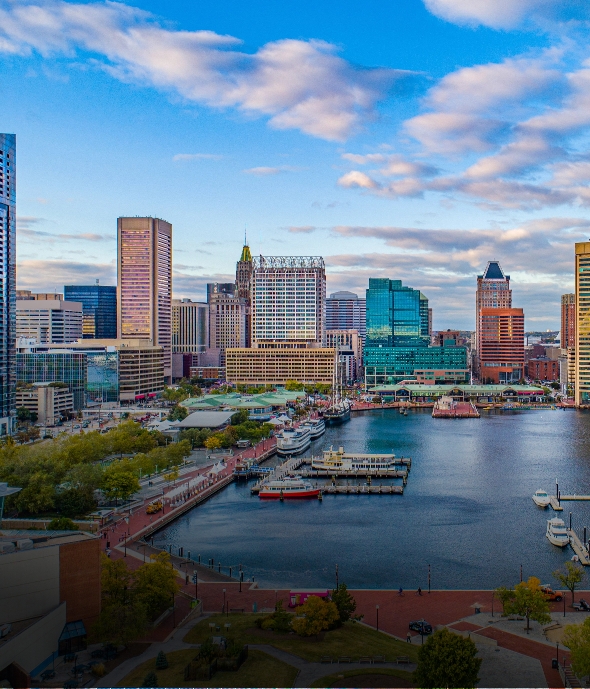As the second leading port of immigration in the United States during the 19th century, Baltimore became a prime destination for two great waves of Jewish immigrants from Europe. Their first stop was typically East Baltimore, now considered the heart of historic Jewish life.
The roots of Baltimore's Jewish community can be explored at the Jewish Museum in East Baltimore, in the Jonestown neighborhood, where two landmark synagogues are featured: Lloyd Street and B'nai Israel. Built in 1845, the Lloyd Street Synagogue is the oldest synagogue in Maryland and the third oldest surviving synagogue structure in the U.S. It was established to serve the early wave of German-speaking Jewish immigrants. The adjacent B'nai Israel Synagogue building, constructed in 1876 but sold to B'nai Israel in 1895, was known as the Russiche Shul, as its members were largely Russian-speaking immigrants fleeing pogroms in the Pale of Settlement.
In 1905, Shomrei Mishmeres HaKodesh assumed ownership of the Lloyd Street Synagogue. It catered to the later wave of immigrants from Eastern Europe, who arrived between 1880-1920. The site became the forerunner of the of Baltimore Talmudical Academy, which was established in 1917 by Rabbi Abraham Nathan Schwartz. Talmudical Academy recently celebrated its first centennial, a remarkable community achievement.
The Jewish Museum has an archive of Torah commentaries dating back to the 19th century, and features important archeological discoveries, including a functioning matzo oven. In 2011, archaeologists uncovered a mikvah under the Lloyd Street structure. It was built in 1845 and is the oldest known ritual bath in the U.S. The Lloyd Street Synagogue was listed on the National Register of Historic Places in 1978 and is well worth a visit.



 STAR-D
STAR-D STAR-S
STAR-S